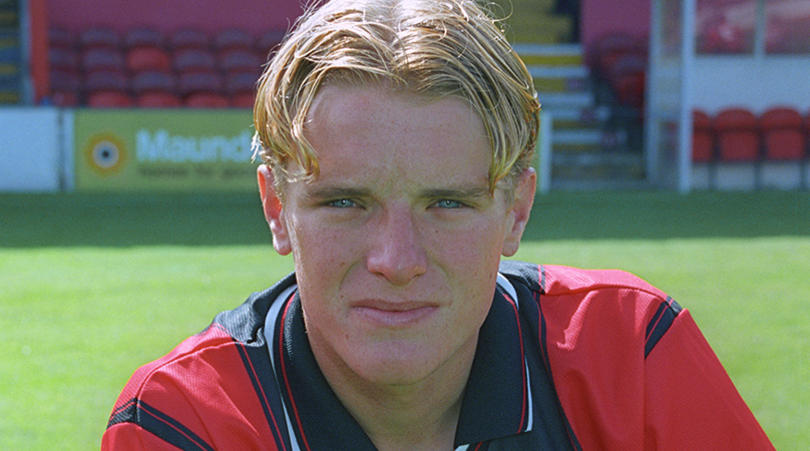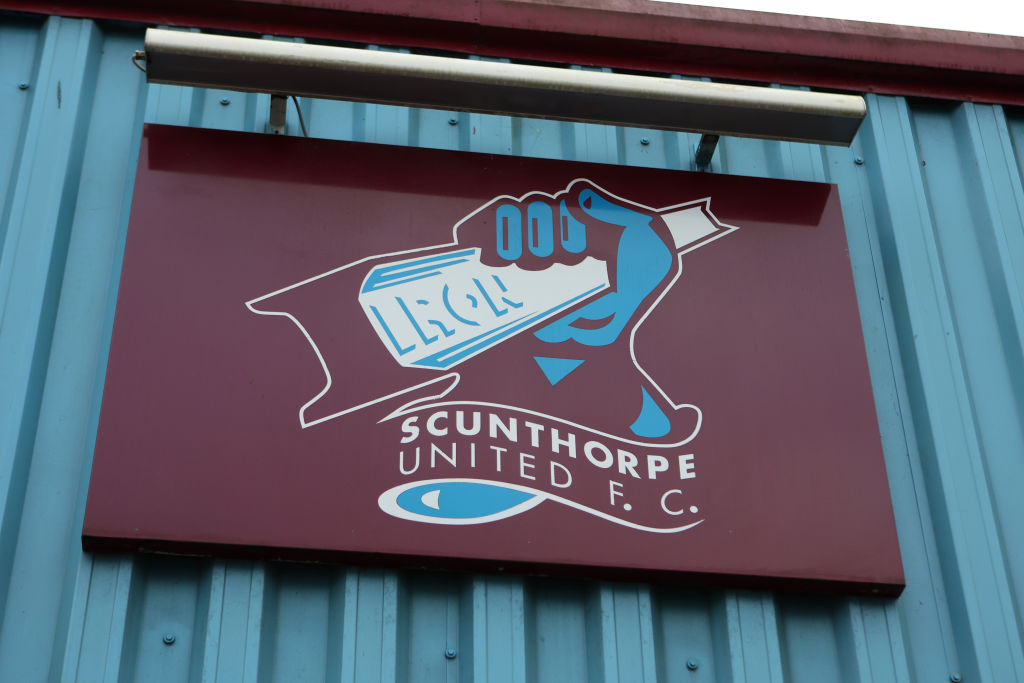6 things everyone will miss about Arsene Wenger
Jon Spurling picks six Wenger traits we'll all get misty-eyed over when the Frenchman leaves north London after almost 22 years this summer
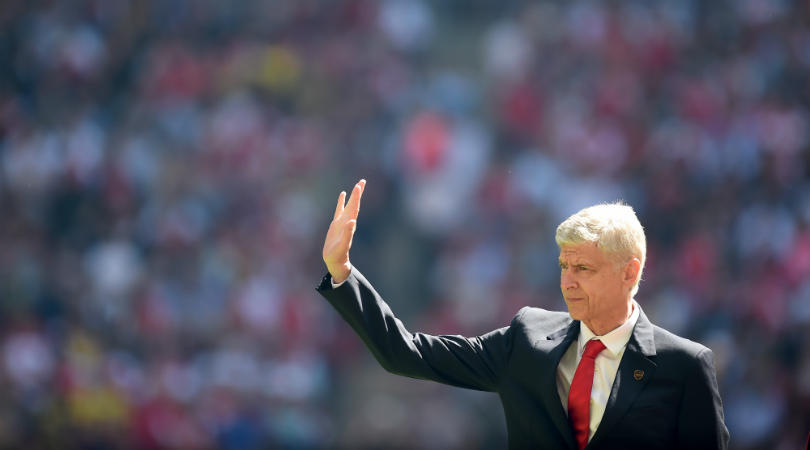
1. The lexicon of football
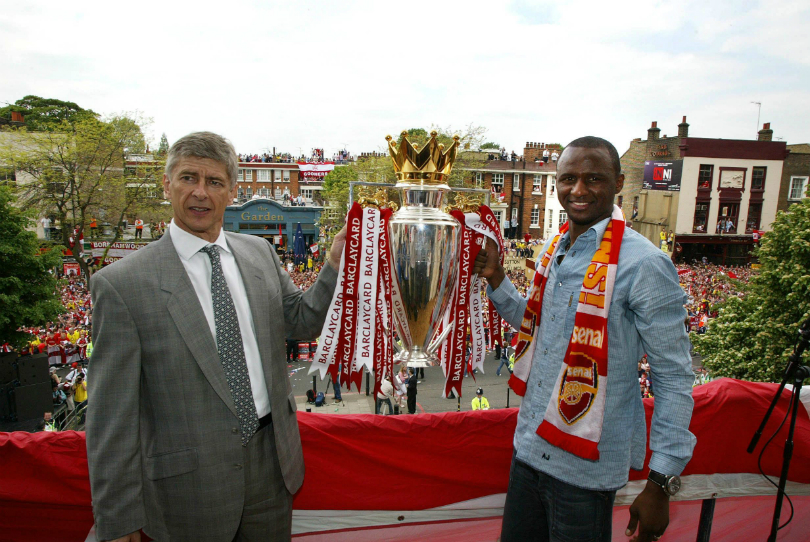
When Wenger took over at Highbury in 1996, English football was firmly rooted in lads' mags land. Indeed, three of his Arsenal stars - Tony Adams, Paul Merson and Ray Parlour - were as likely to make front-page headlines as back-page ones, amid bar-room banter about boozy nights out, fire extinguisher fights in Pizza Hut and dentist chairs.
The language surrounding football was boorish and agricultural, and the English game appeared - in Jonathan Wilson's words - "destined to remain anti-intellectual for eternity".
Wenger - the multi-linguist and Economics graduate - immediately changed the lexicon of football, and was keen to discuss how multiculturalism, psychology and the chaos theory were intrinsically linked to football. Then there was the rationale behind changing players’ diets and training routines, which Wenger was happy to discuss at length. In more recent press conferences, Wenger has pondered the knotty issues of Brexit, and lamented the decline of street football ("You have to fight to win impossible balls. When it's all a bit more formulated then it's less about developing your individual skill; your fighting attitude. We've lost that a little bit in football").
Wenger's rich blend of metaphors, humour and razor-sharp social analysis will be sorely missed. As football writer Miguel Delaney recently wrote: "If you asked him a proper football question, you got a proper football answer – and usually a whole lot more."
2. The patriarch
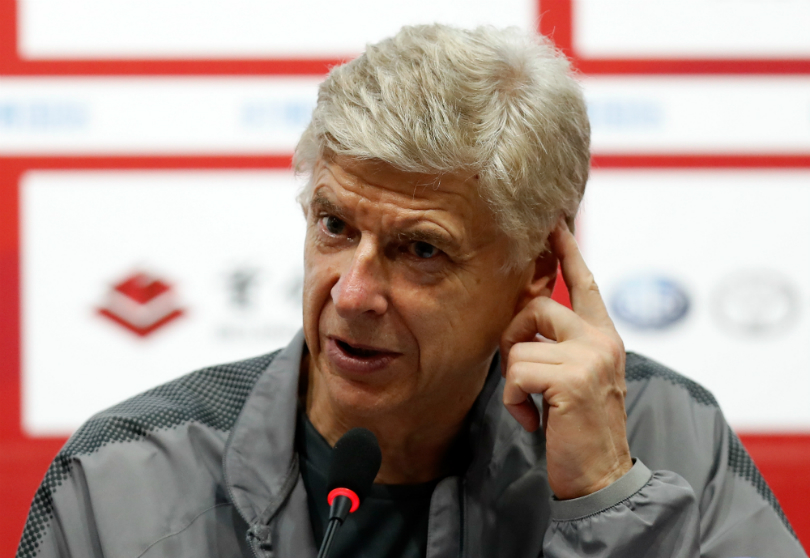
After 22 seasons in charge in N5, Wenger stands accused of having gained far too much power and influence in all areas of the club. Yet what has often been overlooked is that Wenger’s long reign has enabled him to adopt a fatherly approach to nurturing young talent through some difficult formative years. Take Patrick Vieira for instance, parachuted into English football as a 20-year-old after a less-than-successful spell with Milan.
The best features, fun and footballing quizzes, straight to your inbox every week.
“Arsene nurtured me and helped me adjust to an alien football culture,” Vieira reflected in 2006. “Those early months, when you’re getting used to the sights, the sounds and the smells of the English game, can be challenging, and I’ll always be grateful to the boss for helping me navigate my way through.”
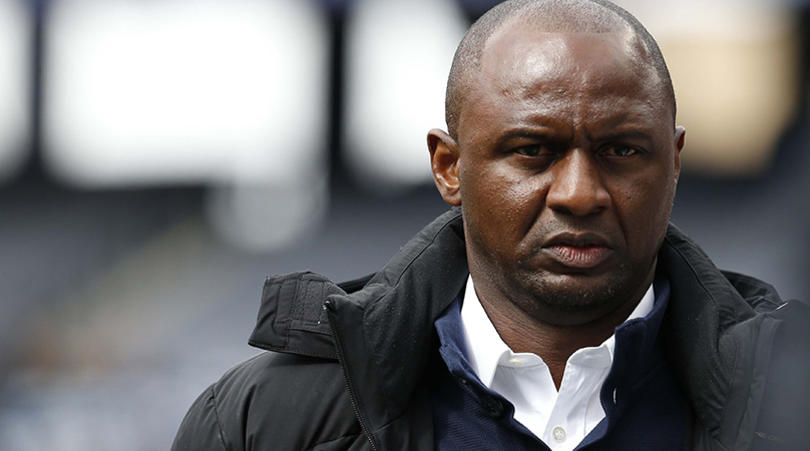
INSIGHT Philosophy vs Résumé: Why Arsenal could see potential in Patrick Vieira the manager
A raft of other stars who glittered under Wenger, including Gilberto Silva, Robin van Persie and Kanu, have praised Wenger for his multicultural and meritocratic approach to the game (“I pick a player on account of their ability, not their passport”), and his mentoring skills. Others, including Emmanuel Petit, Alex Hleb and Nicolas Anelka, have expressed regret that they didn’t stay at Arsenal longer, and that they missed Wenger’s patriarchal approach to his players.
Tony Adams, despite criticising Wenger as a coach in his recent autobiography, remains forever in his debt: Wenger helped him through his rehabilitation after admitting he was an alcoholic, and gave Adams the confidence to morph into a ball playing centre-half. “He gave me a sense of freedom, in every way possible,” Adams has said.
Wenger may have indulged under-achieving stars such as Theo Walcott and Nicklas Bendtner for too long (Patrick Vieira argues: “His loyalty to his players is both his biggest strength and his biggest weakness”) – but without his caring approach in these last 21 years, Arsenal fans would never have seen such fantastic football for much of Wenger’s tenure. The Frenchman's mere presence at Arsenal gave the club a sense of security, and his band of players a level of stability which has been unique to the club.
3. Loyalty
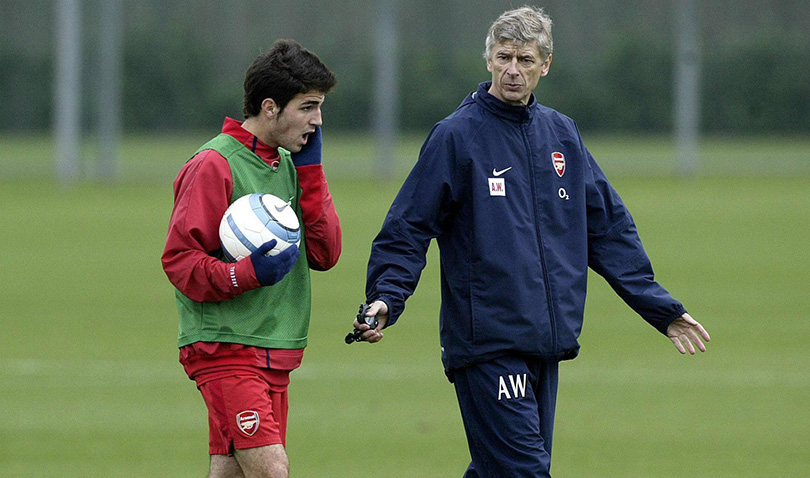
Yes, Wenger earns somewhere in the region of £8 million per year, and no, he’s certainly not a servant to the club in any shape or form. But Arsenal fans should remain eternally grateful to him for helping the club navigate through choppy financial waters in the years after Roman Abramovich bought Chelsea.
From 2005 to 2012, Wenger had to sell a raft of players – including, and certainly not exclusive to Ashley Cole, Cesc Fabregas and Emmanuel Adebayor – just to make ends meet as Arsenal stumped up for the costly Emirates Stadium. All of that came in the face of loudly moneyed rivals Chelsea and Manchester City jacking up transfer fees and wages with their oil money.
Without fail (until this season, anyway), Wenger still delivered Champions League football each season, and his teams continued to play vibrant, incisive football. If he did complain about football’s new money, it tended to be nuanced and from an ethical standpoint. For instance, when Chelsea flop Andriy Shevchenko was rumoured to be departing Stamford Bridge, Wenger lamented: “Chelsea can write off £30 million in the blink of an eye and not give it a second thought. How can that be right? No other club is in that position.”
But despite opportunities to depart and manage both Real Madrid and PSG, Wenger stayed loyal to the cause. Arsenal fans may dismiss the 2006-13 seasons as fallow years in terms of trophies, but one day, when that period is viewed objectively, the vast majority of them will thank Wenger for staying put.
4. Winning
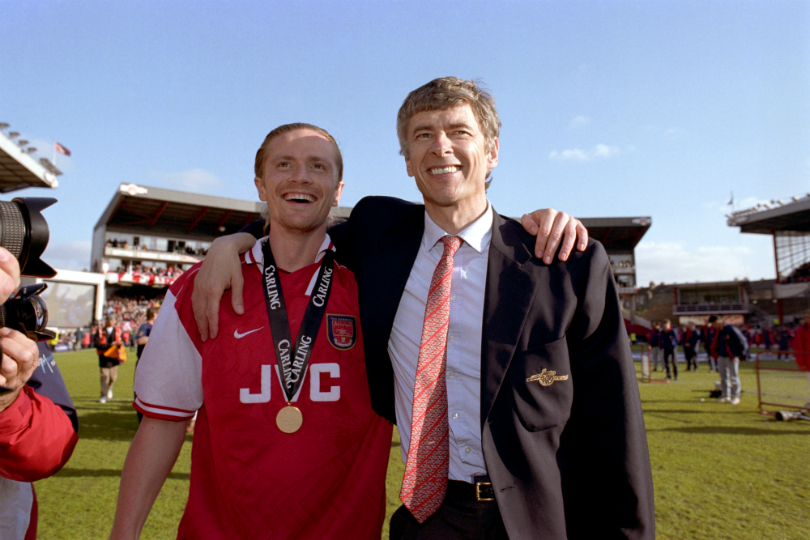
Three FA Cups while the club has ‘declined’ – most clubs wouldn't mind fallow periods like that. Gunners fans tend to be a pragmatic bunch, favouring substance over style (although a combination of both is just fine), but when push comes to shove the main thing they will remember in their dotage are the silver pots their team has won.
In 2014, with sections of the fan base calling for Wenger's head after Arsenal saw their title challenge crumble to dust, they ended their nine-year trophy drought and won the FA Cup at Wembley.
Perhaps he should have stood down there and then, but his team retained their trophy the following year and then produced a barnstorming display to win the FA Cup against Double-chasing Chelsea in 2017. It may not have been the Premier League or Champions League, but supporting major clubs is all about garnering silverware.
Despite the strides made by Mauricio Pochettino’s Tottenham, Arsenal’s deadly rivals have failed to win any trinkets in a decade. With Arsenal a declining force in the league, and calls of ‘mind the gap’ from rival fans, Wenger’s team nonetheless added to their collection of cups as recently as 12 months ago.
5. History man
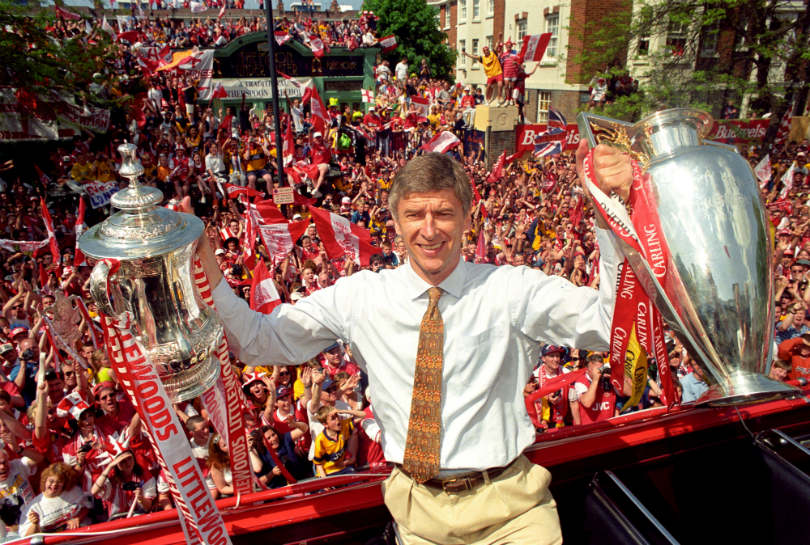
When Wenger took over at Highbury in 1996, he waxed lyrical about the club’s tradition – of the marble halls, the art-deco stands and the work of Herbert Chapman. “There is a unique feeling at this club,” he explained after his friend David Dein had convinced him to leave Nagoya Grampus Eight. Wenger may now be derided about his reference to ‘core values’, but as Observer writer Amy Lawrence commented: “He takes the image of the club very seriously and knows that Arsenal are renowned for doing things in a certain way.”
Hence his attention to detail when it came to assist the planning of the club's state-of-the-art training ground, and the dressing room facilities. And, of course, Wenger was instrumental in shaping stellar moments which will always remain an integral part of Arsenal’s history – his first Double in ’98 with a fusion of earthy Englishness and French sophistication; the second Double in 2002 when his team won the title at Old Trafford; the Invincibles’ season of 2003/04; and ‘Wenger-ball’ in the later noughties.
And the raft of great players – Overmars, Henry, Vieira, Pires, Fabregas and Van Persie. Wenger’s critics argue that was almost a generation ago, and they have a point. But even though his time may be up, Wenger doesn’t just understand Arsenal’s history, he’s helped write several glorious new chapters of it – and in turning Arsenal from boring to beautiful, revolutionised English football in the way Herbert Chapman did in the 1930s.
6. The rivalries
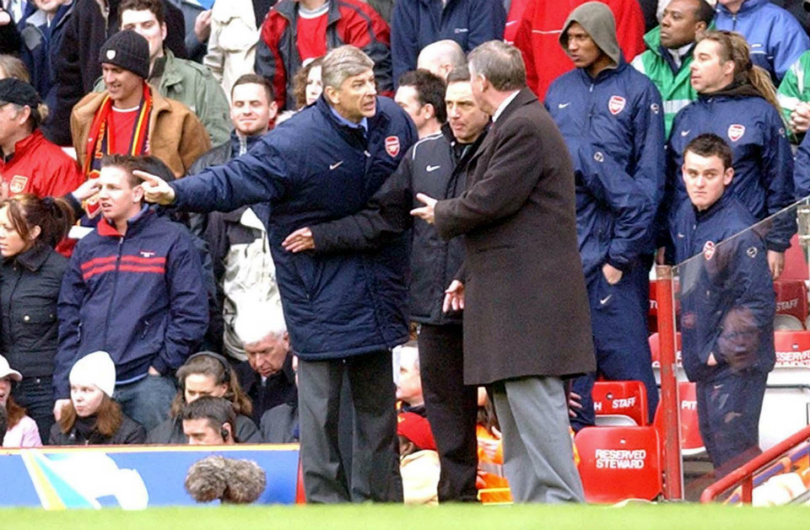
In recent seasons, the multiple cameras at Premier League games have honed in on Wenger struggling with the zip on his coat, throwing down water bottles in frustration at yet another defensive collapse, and arguing with the like of Alan Pardew and Jose Mourinho. But nothing in English football is ever likely to touch the Frenchman’s rivalry with Manchester United supremo Alex Ferguson.
Toxic, aggressive, theatrical, and with a grudging respect lying underneath: Wenger’s skirmishes with Fergie lent England's top flight an edge which hasn’t been seen before or since. Arsenal’s clashes with Manchester United never failed to disappoint, and neither did the verbal jousting between the pair; Wenger’s “everyone thinks they’ve got the prettiest wife at home” was perhaps the most legendary of all.
Wenger knew that the Premier League was all about box office, and his managerial rivalry with Ferguson was a gripping soap opera for well over a decade. It made football worth watching even if you didn’t support either.
Jon Spurling is a history and politics teacher in his day job, but has written articles and interviewed footballers for numerous publications at home and abroad over the last 25 years. He is a long-time contributor to FourFourTwo and has authored seven books, including the best-selling Highbury: The Story of Arsenal in N5, and Get It On: How The '70s Rocked Football was published in March 2022.
